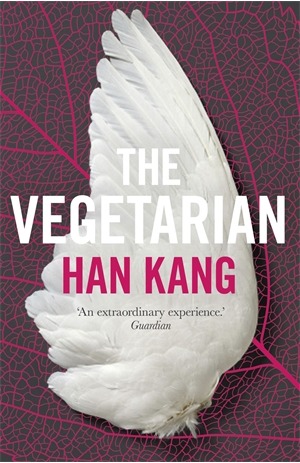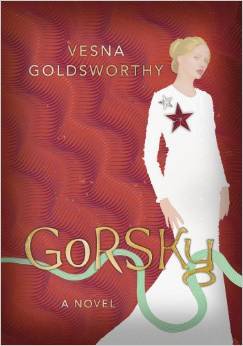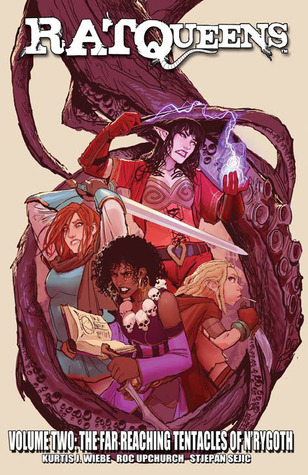Just a quick post this week with more of a general bookish life/reading update than a specific theme.
 Firstly, I wanted to mention a new book-based iPhone app (alas, no Android version yet) called Litsy. As the always excellent Book Riot site put it, Litsy is what would result if Goodreads and Instagram got together and had a baby - it's a clean-looking and easy to use app that allows you to post pictures of your current reads and write short blurbs, reviews and quotes from them. There is also an organisational element which allows you to create 'stacks' of books (To Read, Reading and Read).
Firstly, I wanted to mention a new book-based iPhone app (alas, no Android version yet) called Litsy. As the always excellent Book Riot site put it, Litsy is what would result if Goodreads and Instagram got together and had a baby - it's a clean-looking and easy to use app that allows you to post pictures of your current reads and write short blurbs, reviews and quotes from them. There is also an organisational element which allows you to create 'stacks' of books (To Read, Reading and Read).
I've only been on it a couple of weeks but it definitely has a cleanness about its design that Goodreads lacks and it is considerably easier to navigate, allowing you to find fellow book nerds easily and to start creating content and entering into the community quickly. That said, brevity is key on Litsy, with each post limited to 300 characters so you'll still want to head to Goodreads to get a spread of opinion on a book or provide longer commentary. For anyone with an iPhone who likes books however, Litsy is a nice addition to book-based social media and I'd highly recommend giving it a try. You can find me on there at ShelfofUnreadBooks if you want to come say hello and check out my current reads.
I'm also starting the make summer reading plans, thanks in no small part to the annual Books on the Nightstand summer book bingo. If you haven't discovered Books on the Nightstand (BOTNS for short) yet then you've got a treat in store because it's an excellent weekly books podcast from across the pond in the USA. Alas, hosts Anne and Michael have recently announced a hiatus on the podcast from the end of June but there are several years worth of episodes available for download on their website (which they are keeping live for at least the next two years), which should provide plenty of listening joy for the uninitiated.
For the last few years Ann & Michael have hosted a BOTNS Summer Book Bingo on the show. The idea is to print a randomly generated 5 x 5 square 'bingo' card which lists different categories of books and then attempt to get bingo over the course of the summer by reading a book that will fit each box. So, for example, your bingo card might include 'book set in another country' or 'over 500 pages' or 'by a Latin American author'. The idea is to widen your reading and take you out of your comfort zone whilst, at the same time, having a little fun and turning it into a bit of a game or challenge. The rules are what you make them however Ann & Michael suggest that you:
I tried it last year and did find it a great way to get around to finally reading some books that have been 'bench-warming' on my shelves for a little while but that fitted the categories on my card. As I'm not a fan of a lot of the beach reads and airport fiction that fill shop shelves at this time of the year (I'm not dissing it, it's just I'm not a massive fan of romance novels and thrillers, which often seem to dominate summer reading lists), it's also a great way to keep me reading over the summer months. Last year, I managed to get 'bingo' on two lines before the official end date (the bingo technically runs from Memorial Day weekend in the States (i.e. this weekend) to Labor Day at the beginning of September) but this year I want to aim for full house and complete my card, so 25 books in total between now and September. The link to get a card is, as far as I know, live all year however so you can set whatever end date you want - or even keep printing cards if you enjoy the game and want to continue once you've completed one card. If you want to give it a go, you can print off a bingo card here - let me know in the comments how you get on!
 As a result of the BOTNS Summer Bingo ('translated fiction' is one of my squares), I'm currently reading Han Kang's 'The Vegetarian', which recently won the International Man Booker Prize. I'd heard such amazing things about this novel on a lot of book podcasts and also from some of my favourite people on Twitter so I've had it on my shelf for a couple of months but only now had the impetus to pick it up. I'm about a third of the way through so far (at little over 150 pages, it should be a quick one to read) and it is certainly a very accomplished novella, which appears to have been brilliantly translated into a spare, precise English by Deborah Smith. The content however is, whilst stunningly rendered in prose, quite disturbing and some of the imagery is very visceral. I look forward to reading the rest and being able to give you a review in my wrap up next week.
As a result of the BOTNS Summer Bingo ('translated fiction' is one of my squares), I'm currently reading Han Kang's 'The Vegetarian', which recently won the International Man Booker Prize. I'd heard such amazing things about this novel on a lot of book podcasts and also from some of my favourite people on Twitter so I've had it on my shelf for a couple of months but only now had the impetus to pick it up. I'm about a third of the way through so far (at little over 150 pages, it should be a quick one to read) and it is certainly a very accomplished novella, which appears to have been brilliantly translated into a spare, precise English by Deborah Smith. The content however is, whilst stunningly rendered in prose, quite disturbing and some of the imagery is very visceral. I look forward to reading the rest and being able to give you a review in my wrap up next week.
As always, I'd love to hear what you've been reading so come say hi on Litsy (ShelfofUnreadBooks), Twitter (@amyinstaffs) or post a comment below! And, as always, until next time...
Happy Reading! x
 Firstly, I wanted to mention a new book-based iPhone app (alas, no Android version yet) called Litsy. As the always excellent Book Riot site put it, Litsy is what would result if Goodreads and Instagram got together and had a baby - it's a clean-looking and easy to use app that allows you to post pictures of your current reads and write short blurbs, reviews and quotes from them. There is also an organisational element which allows you to create 'stacks' of books (To Read, Reading and Read).
Firstly, I wanted to mention a new book-based iPhone app (alas, no Android version yet) called Litsy. As the always excellent Book Riot site put it, Litsy is what would result if Goodreads and Instagram got together and had a baby - it's a clean-looking and easy to use app that allows you to post pictures of your current reads and write short blurbs, reviews and quotes from them. There is also an organisational element which allows you to create 'stacks' of books (To Read, Reading and Read). I've only been on it a couple of weeks but it definitely has a cleanness about its design that Goodreads lacks and it is considerably easier to navigate, allowing you to find fellow book nerds easily and to start creating content and entering into the community quickly. That said, brevity is key on Litsy, with each post limited to 300 characters so you'll still want to head to Goodreads to get a spread of opinion on a book or provide longer commentary. For anyone with an iPhone who likes books however, Litsy is a nice addition to book-based social media and I'd highly recommend giving it a try. You can find me on there at ShelfofUnreadBooks if you want to come say hello and check out my current reads.
I'm also starting the make summer reading plans, thanks in no small part to the annual Books on the Nightstand summer book bingo. If you haven't discovered Books on the Nightstand (BOTNS for short) yet then you've got a treat in store because it's an excellent weekly books podcast from across the pond in the USA. Alas, hosts Anne and Michael have recently announced a hiatus on the podcast from the end of June but there are several years worth of episodes available for download on their website (which they are keeping live for at least the next two years), which should provide plenty of listening joy for the uninitiated.
For the last few years Ann & Michael have hosted a BOTNS Summer Book Bingo on the show. The idea is to print a randomly generated 5 x 5 square 'bingo' card which lists different categories of books and then attempt to get bingo over the course of the summer by reading a book that will fit each box. So, for example, your bingo card might include 'book set in another country' or 'over 500 pages' or 'by a Latin American author'. The idea is to widen your reading and take you out of your comfort zone whilst, at the same time, having a little fun and turning it into a bit of a game or challenge. The rules are what you make them however Ann & Michael suggest that you:
- Interpret the categories as you see fit
- Don't use one book for more than one square
- Use the Free Square for any book you want to read that won't fit into a category
I tried it last year and did find it a great way to get around to finally reading some books that have been 'bench-warming' on my shelves for a little while but that fitted the categories on my card. As I'm not a fan of a lot of the beach reads and airport fiction that fill shop shelves at this time of the year (I'm not dissing it, it's just I'm not a massive fan of romance novels and thrillers, which often seem to dominate summer reading lists), it's also a great way to keep me reading over the summer months. Last year, I managed to get 'bingo' on two lines before the official end date (the bingo technically runs from Memorial Day weekend in the States (i.e. this weekend) to Labor Day at the beginning of September) but this year I want to aim for full house and complete my card, so 25 books in total between now and September. The link to get a card is, as far as I know, live all year however so you can set whatever end date you want - or even keep printing cards if you enjoy the game and want to continue once you've completed one card. If you want to give it a go, you can print off a bingo card here - let me know in the comments how you get on!
 As a result of the BOTNS Summer Bingo ('translated fiction' is one of my squares), I'm currently reading Han Kang's 'The Vegetarian', which recently won the International Man Booker Prize. I'd heard such amazing things about this novel on a lot of book podcasts and also from some of my favourite people on Twitter so I've had it on my shelf for a couple of months but only now had the impetus to pick it up. I'm about a third of the way through so far (at little over 150 pages, it should be a quick one to read) and it is certainly a very accomplished novella, which appears to have been brilliantly translated into a spare, precise English by Deborah Smith. The content however is, whilst stunningly rendered in prose, quite disturbing and some of the imagery is very visceral. I look forward to reading the rest and being able to give you a review in my wrap up next week.
As a result of the BOTNS Summer Bingo ('translated fiction' is one of my squares), I'm currently reading Han Kang's 'The Vegetarian', which recently won the International Man Booker Prize. I'd heard such amazing things about this novel on a lot of book podcasts and also from some of my favourite people on Twitter so I've had it on my shelf for a couple of months but only now had the impetus to pick it up. I'm about a third of the way through so far (at little over 150 pages, it should be a quick one to read) and it is certainly a very accomplished novella, which appears to have been brilliantly translated into a spare, precise English by Deborah Smith. The content however is, whilst stunningly rendered in prose, quite disturbing and some of the imagery is very visceral. I look forward to reading the rest and being able to give you a review in my wrap up next week.As always, I'd love to hear what you've been reading so come say hi on Litsy (ShelfofUnreadBooks), Twitter (@amyinstaffs) or post a comment below! And, as always, until next time...
Happy Reading! x





